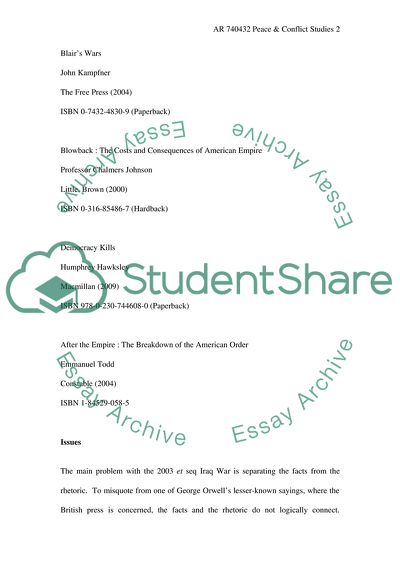Cite this document
(What are the Reasons that have Pushed the Americans and the British to Intervene in Iraq Essay Example | Topics and Well Written Essays - 2000 words - 1, n.d.)
What are the Reasons that have Pushed the Americans and the British to Intervene in Iraq Essay Example | Topics and Well Written Essays - 2000 words - 1. https://studentshare.org/history/1785334-peace-and-conflict-studies
What are the Reasons that have Pushed the Americans and the British to Intervene in Iraq Essay Example | Topics and Well Written Essays - 2000 words - 1. https://studentshare.org/history/1785334-peace-and-conflict-studies
(What Are the Reasons That Have Pushed the Americans and the British to Intervene in Iraq Essay Example | Topics and Well Written Essays - 2000 Words - 1)
What Are the Reasons That Have Pushed the Americans and the British to Intervene in Iraq Essay Example | Topics and Well Written Essays - 2000 Words - 1. https://studentshare.org/history/1785334-peace-and-conflict-studies.
What Are the Reasons That Have Pushed the Americans and the British to Intervene in Iraq Essay Example | Topics and Well Written Essays - 2000 Words - 1. https://studentshare.org/history/1785334-peace-and-conflict-studies.
“What Are the Reasons That Have Pushed the Americans and the British to Intervene in Iraq Essay Example | Topics and Well Written Essays - 2000 Words - 1”. https://studentshare.org/history/1785334-peace-and-conflict-studies.


